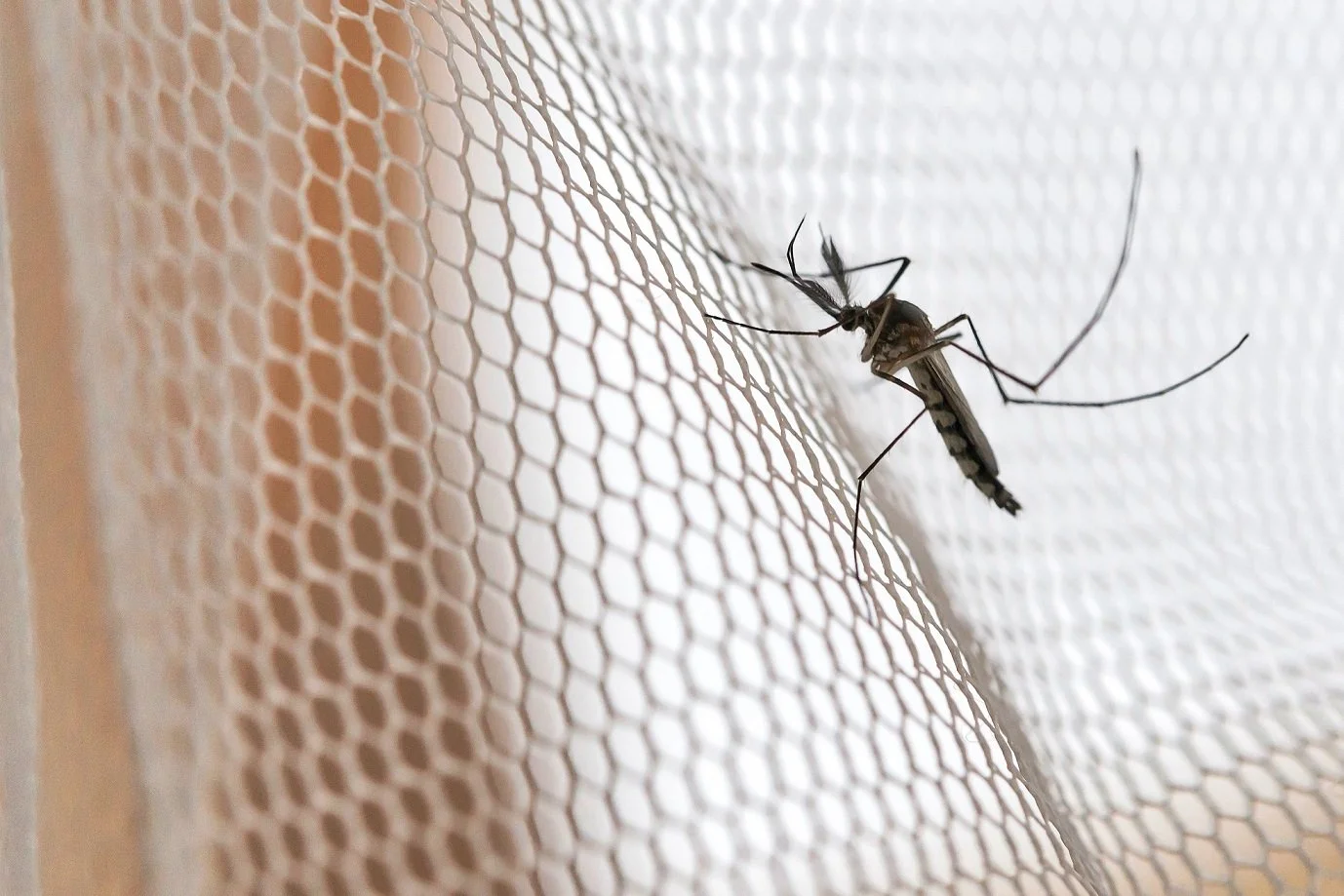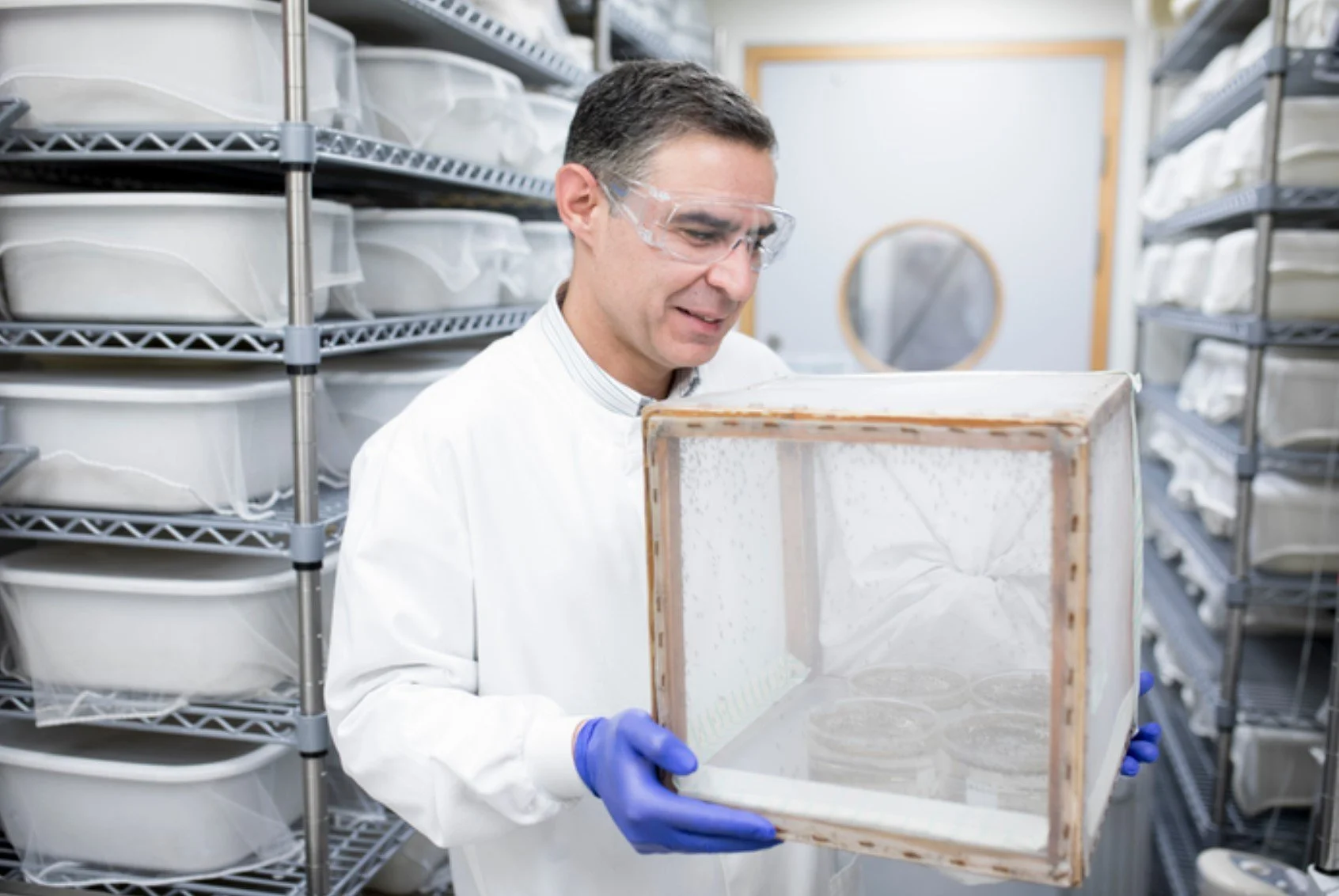Scientists at Imperial College London developed a new tool for the fight against malaria. They engineered parasite-carrying mosquitoes in such a way that they could no longer spread the disease to humans.
Image Credit: GrooveZ vai Shutterstock / HDR tune by Universal-Sci
A devastating disease
Malaria is an infectious disease caused by unicellular parasites of the genus Plasmodium. The parasite is commonly transmitted to humans via mosquitoes.
The World Health Organization estimates that over half a million people die of malaria each year. Most casualties occur in Africa, the vast majority of which are children under the age of 5.
Currently, preventative measures centering around mosquito control focus on things like insecticides and mosquito nets. However, researchers at Imperial College London looked at the problem from a different angle.
Slowing the growth of parasites
The team has engineered mosquitoes in such a way that they slow the growth of malaria parasites in their gut, preventing transmission of the disease to humans.
After a female mosquito bites a person carrying the malaria parasite, it gets infected. Then, the parasite advances to the next stage in the insect's digestive tract and moves to its salivary glands, ready to spread to the next human.
Nevertheless, only about 10% of mosquitoes survive long enough for the parasite to get to the point where it may spread. The research team tried to further decrease the odds of the parasite reaching the salivary glands by delaying the parasite's development in the stomach for a more extended period of time.
The scientists were able to engineer mosquitoes in such a way that they create two molecules(at the moment they take blood) in their intestines known as antimicrobial peptides. These peptides hinder the growth of the malaria parasite and were first discovered in honeybees and African clawed frogs.
Using this method, it was possible to delay the parasite from reaching the salivary glands by a few days long enough that it overcomes the life expectancy of most mosquitoes in nature.
The peptides function by interfering with the parasite's energy metabolism, which also has some impact on the mosquito, shortening its lifetime and reducing the mosquito's capacity to spread the infection.
Professor George Christophides from the Department of Life Sciences at Imperial College London holding a cage of mosquitoes - (Image Credit: Imperial College London via EurekAlert)
Promising results
So far, the method has been demonstrated to lower the likelihood of malaria transmission in the laboratory significantly. If it also turns out to be secure and efficient in a real-life environment, it may become an extremely potent tool to aid in eradicating malaria.
The gene modification must be transferred from laboratory-bred mosquitoes to wild ones in order to employ the genetic change to stop the spread of malaria in the real world.
To make this possible, scientists are currently looking at 'gene drive,' a supplementary technique that would induce the anti-parasite modification to be preferentially inherited, allowing it to distribute more broadly amongst natural mosquito populations. However, these relatively new tactics need careful planning.
Professor George Christophides, one of the lead authors of the study, stated:
"History has taught us that there is no silver bullet when it comes to malaria control; thus, we will have to use all the weapons we have at our disposal and generate even more.''
''Gene drive is one such very powerful weapon that, in combination with drugs, vaccines, and mosquito control, can help stop the spread of malaria and save human lives."
The team has published a paper about their findings in the peer-reviewed journal Science Advances. We have listed it below for those interested in more details about the research.
Sources and further reading:
If you enjoy our selection of content consider subscribing to our newsletter (Universal-Sci Weekly)
FEATURED ARTICLES:








